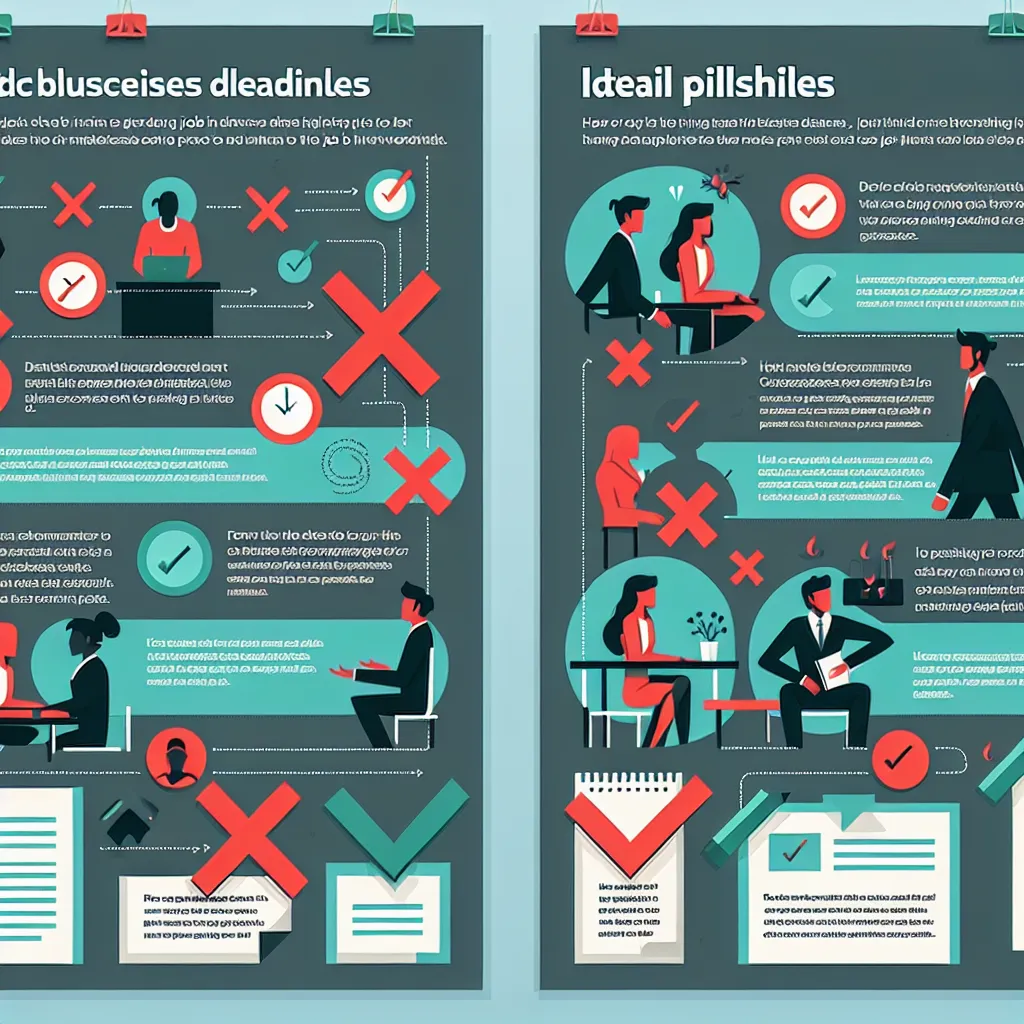In today’s fast-paced work environment, the ability to meet deadlines is a crucial skill that employers value highly. When interviewing for a job, you’re likely to be asked about your experience with deadlines. This article will guide you on how to effectively communicate your deadline management skills during an interview, providing you with strategies to showcase your abilities and impress potential employers.
Understanding the Importance of Deadline Management
Deadlines are an integral part of most jobs, regardless of the industry. They help in prioritizing tasks, managing workload, and ensuring projects are completed on time. When employers ask about your experience with deadlines, they’re not just interested in whether you can meet them; they want to understand your approach to time management, your ability to handle pressure, and your problem-solving skills.
 Deadline Management Skills
Deadline Management Skills
How Employers Evaluate Deadline Management Skills
When discussing your experience with deadlines, employers typically assess several key aspects:
- Time management abilities
- Prioritization skills
- Stress handling
- Communication skills
- Problem-solving capabilities
- Adaptability
Understanding these evaluation criteria will help you frame your responses effectively during the interview.
Common Interview Questions About Deadlines and Sample Answers
Here are some typical questions you might encounter, along with sample answers to guide you:
1. Can you describe a situation where you had to meet a tight deadline?
Sample Answer: “In my previous role as a marketing coordinator, we had a client who needed a complete campaign strategy in just two weeks, which was half our usual timeframe. I immediately broke down the project into daily goals, delegated tasks to team members based on their strengths, and scheduled daily check-ins. We also used collaborative tools to streamline communication. By prioritizing efficiently and putting in extra hours when needed, we delivered the strategy on time, and the client was extremely satisfied with the result.”
2. How do you prioritize tasks when working on multiple projects with conflicting deadlines?
Sample Answer: “I use a combination of urgency and importance to prioritize tasks. First, I list all projects and their deadlines. Then, I assess each task’s impact on the overall goals. I use tools like Eisenhower Matrix to categorize tasks. For conflicting deadlines, I communicate with stakeholders to negotiate possible extensions or additional resources. This approach helps me manage expectations and deliver high-quality work consistently.”
3. Have you ever missed a deadline? How did you handle it?
Sample Answer: “Yes, early in my career, I missed a deadline for submitting a quarterly report. As soon as I realized I wouldn’t meet the deadline, I immediately informed my supervisor, explained the reasons, and proposed a new timeline. I also offered to work extra hours to minimize the delay. This experience taught me the importance of proactive communication and realistic time estimation. Since then, I’ve implemented a system of setting personal deadlines ahead of actual due dates to ensure I always have a buffer.”
Tips for Handling Questions About Deadlines Outside Your Experience
Sometimes, you might be asked about deadline situations you haven’t directly encountered. Here’s how to handle such questions:
- Be honest: It’s okay to admit you haven’t faced that specific situation.
- Draw parallels: Relate the question to similar experiences you’ve had.
- Discuss your approach: Explain how you would handle such a situation based on your skills and knowledge.
- Show eagerness to learn: Express your willingness to adapt and learn new deadline management techniques.
Common Mistakes to Avoid When Discussing Deadline Experiences
When talking about your experiences with deadlines, be careful to avoid these common pitfalls:
- Overemphasizing stress: While it’s okay to acknowledge that deadlines can be stressful, focus more on how you manage and overcome challenges.
- Blaming others: Avoid shifting responsibility for missed deadlines to teammates or external factors.
- Appearing inflexible: Don’t give the impression that you’re unable to adapt to changing deadlines or priorities.
- Undervaluing the importance of deadlines: Show that you understand the impact of deadlines on business operations.
- Lacking specific examples: Always be prepared with concrete instances that demonstrate your deadline management skills.
 Common Deadline Discussion Mistakes
Common Deadline Discussion Mistakes
Follow-up Questions and Suggested Answers
Here are some additional questions you might encounter, along with suggestions for how to answer them:
-
How do you handle unexpected delays that threaten a deadline?
Suggestion: Discuss your problem-solving skills, ability to reprioritize, and communication strategies with stakeholders. -
Can you give an example of how you’ve improved your time management skills?
Suggestion: Share a specific instance where you identified a weakness in your time management and the steps you took to improve. -
How do you motivate team members to meet tight deadlines?
Suggestion: Highlight your leadership and motivational skills, emphasizing clear communication and recognition of team efforts. -
What tools or techniques do you use to track deadlines and progress?
Suggestion: Mention specific project management tools or personal techniques you’ve found effective, explaining how they contribute to meeting deadlines. -
How do you balance quality of work with meeting deadlines?
Suggestion: Discuss your approach to maintaining high standards while working efficiently, possibly mentioning techniques like time-boxing or the 80/20 rule. -
Describe a time when you had to negotiate a deadline extension. What was the outcome?
Suggestion: Focus on your communication skills, ability to present a compelling case, and how you maintained a positive relationship with stakeholders. -
How do you stay focused and productive when working on long-term projects with distant deadlines?
Suggestion: Explain your strategies for breaking down large projects, setting interim milestones, and maintaining motivation over extended periods.
Conclusion
Effectively discussing your experience with deadlines in an interview is crucial for demonstrating your value as a potential employee. By preparing thoughtful responses to common questions, avoiding typical mistakes, and showcasing your skills in time management and problem-solving, you can leave a lasting positive impression on your interviewer.
Remember, the key is to provide specific examples that illustrate your ability to manage deadlines effectively, communicate clearly, and adapt to challenging situations. With practice and preparation, you can confidently tackle any deadline-related questions in your next interview.
For more tips on acing your job interview, check out our articles on how to discuss your experience in leadership roles and how to talk about your communication style in an interview.




